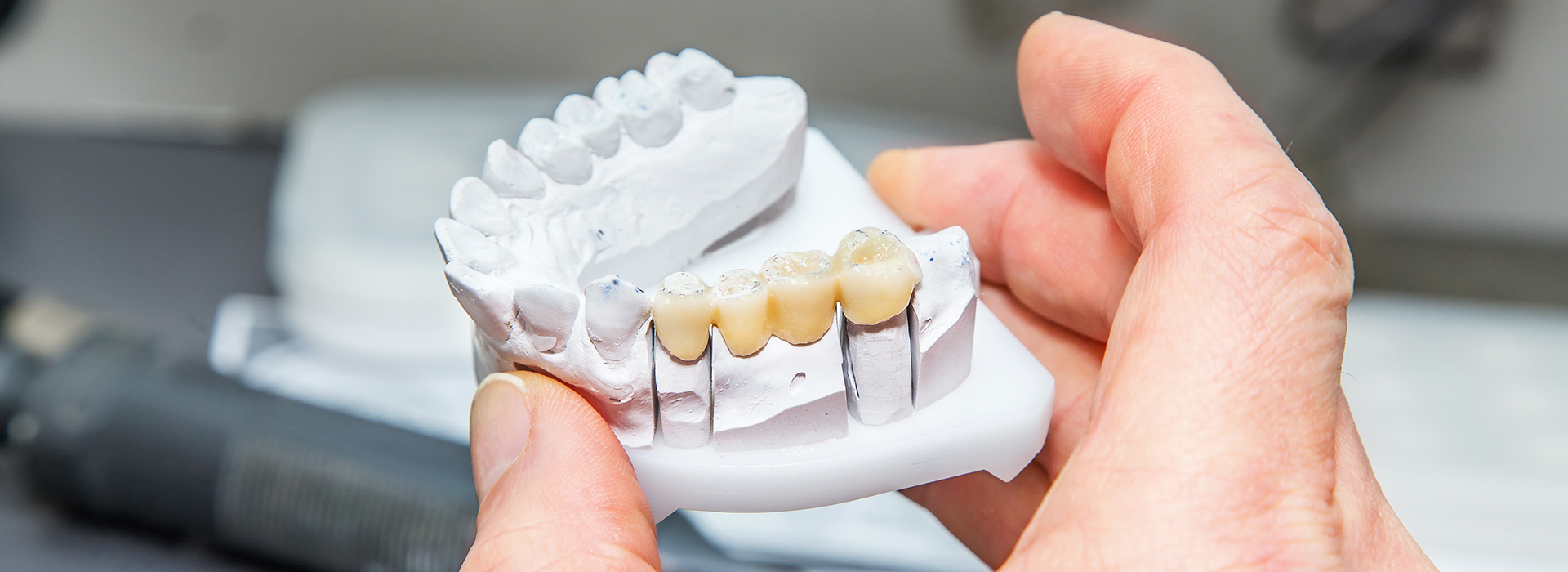7764 Colerain Ave,
Cincinnati, OH 45239
Existing Patients:
(513) 741-2253
New Patients:
(513) 208-2475

At Everyday Dental, we are committed to delivering expert care that helps every patient achieve and maintain a healthy, confident smile. For those who have lost teeth due to decay, gum disease, injury, medical conditions, or treatment side effects, we provide a full range of restorative solutions designed to restore both the function and appearance of your smile.

Missing teeth affect more than just the way your smile looks. While the visible gaps may cause you to feel self-conscious, the consequences of tooth loss reach much further. Without proper replacement, missing teeth can compromise both oral health and everyday function in several important ways:
Although the effects of missing teeth can feel overwhelming, modern dentistry offers excellent solutions to restore both appearance and function. Advances in materials, technology, and treatment techniques now make it easier than ever to replace missing teeth with results that look natural and last for years.
Depending on your unique needs and preferences, treatment may involve partial or full dentures, fixed bridges, or dental implants. Each approach has its own benefits, and our team works closely with every patient to recommend the most suitable option for their oral health, lifestyle, and goals. No matter which solution you choose, you can look forward to renewed confidence in your smile and your ability to enjoy everyday activities.
A dental bridge is one of the most time-tested and reliable options for replacing missing teeth. Unlike removable dentures that rely on clasps, a bridge is a fixed restoration anchored by crowns on the teeth adjacent to the empty space—or supported by dental implants. By filling in the gap, a bridge not only restores the look and feel of your smile but also prevents unwanted shifting of your natural teeth.
The concept of bridging gaps in the smile dates back thousands of years. While ancient civilizations used bone, ivory, and even human teeth as substitutes, today’s bridges are fabricated from high-quality dental materials such as porcelain, porcelain fused to metal, and advanced ceramics like zirconia. These modern materials make bridges stronger, longer-lasting, and more natural-looking than ever before.
The best type of bridge depends on how many teeth are missing, the condition of surrounding teeth, and your overall oral health. While there are several variations, the most common include traditional fixed bridges and implant-supported bridges.
A traditional fixed bridge is supported by crowns on the natural teeth adjacent to the gap. These crowned teeth serve as anchors for the artificial teeth, known as “pontics,” which fill in the missing space. Much like a structural bridge that relies on sturdy supports at each end, a dental bridge gains its strength from the crowned abutment teeth fused to the pontics. A cantilever bridge, while similar, attaches the pontic on just one side and is used in more limited situations.
Implant-supported bridges are considered the most advanced and versatile solution for replacing multiple missing teeth. Instead of relying on natural teeth for support, the bridge attaches to dental implants that act as artificial roots. Because implants fuse directly with the jawbone, they provide exceptional stability and help preserve bone health by stimulating the surrounding bone tissue. This not only ensures a secure restoration but also helps maintain natural facial contours over time.
Implant-supported bridges can be designed to replace just a few missing teeth or even an entire arch, making them one of the most comprehensive tooth replacement options available.
Before beginning any tooth replacement procedure, it’s important to complete a thorough dental evaluation. We’ll assess the health of your teeth, gums, and bone structure, as well as discuss your goals, expectations, and budget. If gum disease or other oral health issues are present, they must be treated first to create a stable foundation for your new restoration.
For traditional bridges, the supporting teeth must be strong and healthy enough to bear the load. For implant-supported bridges, there must be sufficient bone volume to hold the implants securely. In some cases, a bone grafting procedure may be recommended to ensure long-term success.
Getting a dental bridge typically takes more than one visit. For a traditional bridge, the supporting teeth are first reshaped and fitted with temporary crowns while impressions are taken to design your final restoration. A temporary bridge is placed in the meantime to protect your smile. At a follow-up visit, your permanent bridge is carefully adjusted for fit, comfort, and bite before being securely bonded into place.
For implant-supported bridges, dental implants are placed during a minor surgical procedure. Over the next several months, they integrate with the jawbone in a process called osseointegration. Once healed, the final bridge is attached, providing a stable and natural-feeling result. In some cases, temporary restorations can be worn during healing to ensure you never go without a smile.
Whether you choose a traditional fixed bridge, an implant-supported bridge, or another tooth replacement option, our mission is the same: to help you regain a complete, healthy smile that looks beautiful and functions properly. With compassionate care, advanced techniques, and high-quality materials, we’ll guide you every step of the way toward a restoration that restores comfort, protects your oral health, and gives you the confidence to smile again.
A dental bridge is a fixed restoration used to replace one or more missing teeth. It is anchored to the adjacent healthy teeth or dental implants, filling the gap and restoring the function and appearance of your smile.
Most patients quickly adjust to a dental bridge. Properly fitted bridges feel natural, and with time, you’ll regain normal chewing and speaking function.
Good oral hygiene is essential. Brush twice daily, floss under the bridge using special floss threaders, and visit your dentist regularly for cleanings and checkups to ensure the bridge remains healthy and secure.
With proper care, dental bridges can last 10 to 15 years or longer. Routine dental visits and excellent home care are key to longevity.
Many dental insurance plans provide coverage for bridges, though the amount varies depending on your policy. Our office can help you understand your benefits and maximize your coverage.
At our office, we provide expert care with precise, custom-made bridges that restore both function and aesthetics. Our skilled team ensures comfort, durability, and natural-looking results for every patient.
A properly designed bridge distributes bite forces evenly and protects the adjacent teeth. Regular dental care helps maintain the health of supporting teeth and prevents complications.
Yes. Common types include traditional bridges, cantilever bridges, Maryland bridges, and implant-supported bridges. Your dentist will recommend the best option based on your oral health and needs.